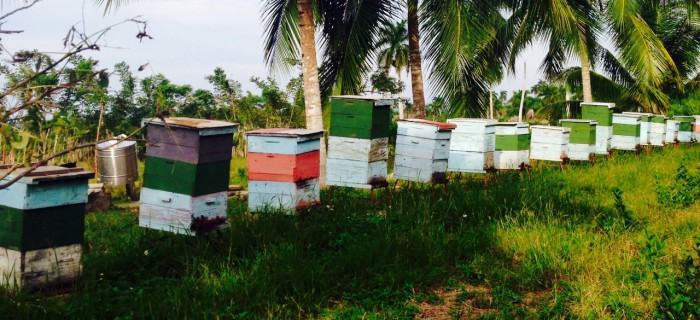Farmer Autonomy With State Support: The Cuban Agroecological Experiment
by Christina Bronsing-Lazalde
The son of two pioneers of the Cuban agroecology movement, Fernando Funes- Monzote has been steeped in sustainable farming his entire life. Two years ago, he decided to take his knowledge to uncharted territories. He wanted to prove that diversified, agroecological farming can be sustainable not only on good soils, but can transform poor soils into productive land. In a country known for its top-down policies, Funes-Monzote is a testament to the bottom-up experimental nature of family farmers everywhere.
Fernando wanted to prove that diversified, agroecological farming can be sustainable not only on good soils, but can transform poor soils into productive land.
When Serápio, a 93-year-old farmer, was no longer able to work, he granted Fernando access to eight hectares of his land, located 40 minutes outside of Havana. Fernando deliberately chose to carry out his experiment on rocky, hilly lands with poor soils overrun by marabú—an invasive species of thorny bush that covers nearly 5 million acres across the island. After removing over 6,000 bushes by hand, Fernando and a small team began to measure the land, plot contours, build fences, dig a new well, and plan out the farm.
After only two years, Finca Marta—named after Fernando’s mother—is buzzing… literally. From one beehive in the first year to thirty hives and over three tons of honey in 2013, Fernando now has a contract with the state to maintain 20-30 hives on the land. The government furnished the equipment for the hives and provides a guaranteed market for the honey.
Rows of lettuce, peas, spinach, herbs, sugarcane, coffee, cedars, bananas and yuca line the farm along with sheep, oxen and cows. The agroecosystem is vibrant, biologically diverse and highly productive. The farm supports six salaried workers and plans to pay off all the initial investments by the end of its fifth year. This success has come by way of much sacrifice and dedication from the whole family. Fernando’s wife Claudia stays in Havana with their two boys during the school week and travels with them to the farm on weekends.
Fernando is not the only one eagerly pursuing an agricultural life in Cuba. The “Special Period”—following the fall of the Soviet Union and the country’s loss of access to agrochemicals—initiated a new era of state support for sustainable agriculture and repopulation of the countryside.
Also in this issue of News & Views:
Stay in the loop with Food First!
Get our independent analysis, research, and other publications you care about to your inbox for free!
Sign up today!- “New Law Envisions a Brighter Future for California’s Urban Agriculture” by Ashley Pinkerton
- Food First Welcomes Six New Board Members!


 Help Food First to continue growing an informed, transformative, and flourishing food movement.
Help Food First to continue growing an informed, transformative, and flourishing food movement.




